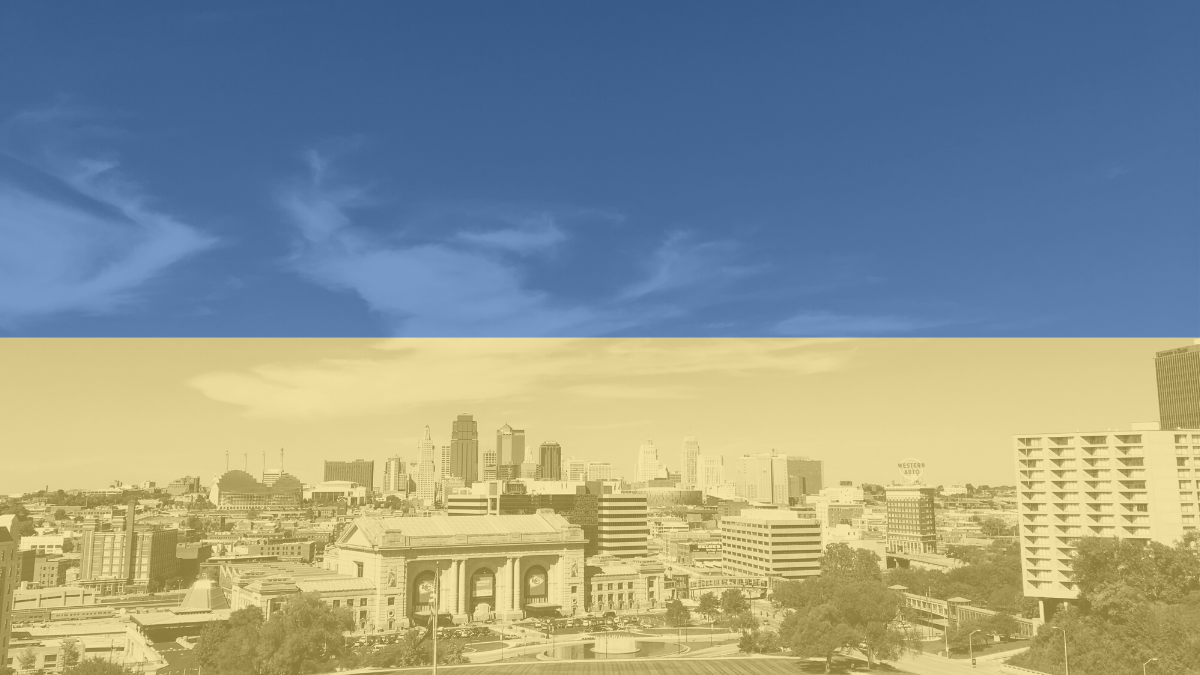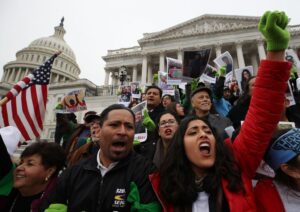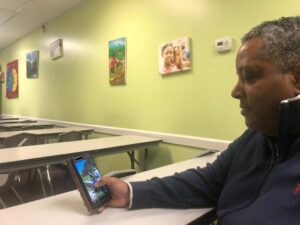7:00
News Story
Goodwill for Ukrainian refugees is abundant in KC. But what about other refugees?
This story was originally published by The Beacon.
It wasn’t long after Russia invaded Ukraine on Feb. 24, sending more than a million civilians scrambling for safety, that resettlement organizations around the Kansas City area began receiving offers of refugee support.
The messages were almost universally well-meaning. People offered financial donations and even volunteered to open their homes to Ukrainian families in need.
But for people working to resettle refugees here, the latest inquiries have been met with a mixed response. Staffers are grateful for people’s compassion for Ukrainian refugees, just as they were for the outpouring of concern for refugees displaced from Afghanistan last year. But they caution against singling out one group of refugees for help, when people from multiple countries are being displaced around the world, and their needs are acute and ongoing.
“The circumstances are always harrowing,” Cori Wallace, the engagement director for Della Lamb Community Services, wrote in a recent email newsletter to volunteers. “(Your support) might be meeting the needs of someone from Rwanda, the Sudan, etc., and we want you to embrace that possibility.”
Though Della Lamb and other refugee organizations welcome one-time and earmarked donations and any support that donors can offer, staffers emphasize that they are in need of year-round support in order to aid refugee families throughout the years-long process of resettlement.
Kansas City refugee support
Ryan Hudnall, executive director of Della Lamb, said he sees waves of support in response to news coverage that moves quickly from crisis to crisis.
“If we always remain in a state of urgency, then everything becomes urgent,” Hudnall said. “And in order to really pursue true health as a city, or as an agency, we need to make sure that we honor those that we’ve (already) received as well.”
With media coverage focused on the war in Ukraine or the withdrawal of U.S. military presence in Afghanistan, he said, it’s easy to lose sight of the fact that, at the end of 2020, the United Nations had estimated that 82.4 million people around the globe had been forcibly displaced by conflict, violence, persecution and human rights violations.
“When you hear conversations regarding potential nuclear war, of course, that’s going to drive coverage,” Hudnall said. “There are 80 million people displaced across the globe. How are our hearts breaking for them, too?”
Conditional support based on race
Sofia Khan, founder of KC for Refugees, also cautioned against valuing one group of refugees over others.
Khan’s nonprofit is often the first contact for Kansas City residents who want to support refugees who are settling in the area. Since Russia’s invasion of Ukraine, she has received emails offering support and donations.
She felt grateful at first, excited that some people were even offering to host families in spare bedrooms. But her optimism soured when some volunteers specified that their assistance was limited to Ukrainian families.
“It was heartwarming to see people felt their pain at the beginning, but then suddenly it hit us: Why are you using the words ‘only Ukrainian’?” she said. “Where were these people when we needed help for others?”
Khan, a physician who founded her nonprofit to supplement the work of other resettlement groups while the Syrian civil war was displacing people, said this is the first time she has encountered offers limited to a select group. She suspects that, consciously or subconsciously, some people believe that white refugees are more worthy of help than refugees of color.
“These are people who are specifically only feeling the pain because these people are white,” she said. “Why did I reach out now? And why did I not reach out before? And why am I hurting now and I did not hurt before? You need to ask your own conscience.”
Khan is not alone in raising this issue. Last month, Black students fleeing Ukraine said they were turned away at the Polish border. The New York Times recently reported on a medical student from Sudan who was beaten while trying to enter Poland, while white Ukrainian residents were greeted with hugs and hot food.
Closer to home, thousands of Haitian asylum-seekers to the United States were met with expletives and deported by the Biden administration. A U.S. news reporter issued an apology for his word choice implying that Ukraine is a more “civilized” nation than Iraq or Afghanistan.
Khan said she has encountered many refugees of color in Kansas City who have experienced racial discrimination along the journey out of their country.
While not downplaying the suffering of the Ukrainian refugees, Khan urged people to have compassion for refugees of all backgrounds.
“You should think from the lens of a humanitarian, and not only help people if they are like you,” she said. “If your heart opened up to them, ask yourself why your heart did not open up when other people were suffering, and why you did not pay attention to those people.”
Refugee support and volunteering
Since August, Della Lamb and the region’s two other resettlement agencies, Jewish Vocational Service and Catholic Charities of Northeast Kansas, have welcomed 800 to 1,000 Afghan evacuees. They join refugees from the Democratic Republic of the Congo, Myanmar, Sudan, Syria, Somalia and multiple other nations who are using Kansas City as a portal to a new start in the United States.
While donations of money and some items are always appreciated, Khan and Hudnall said their most pressing need now is for volunteers.
“We’ve seen so many people who have given furniture and donations in support of those who are coming,” Hudnall said. “It’s wonderful. But if it remains transactional, you’ll miss the joy of it.”
Della Lamb, Jewish Vocational Service and Catholic Charities of Northeast Kansas all have a variety of volunteer opportunities.These include tutoring in English once a week, taking families grocery shopping, or transportation to medical appointments and other essential errands.
Working directly with refugees pushes people out of their comfort zone, so volunteers are sometimes hesitant to build relationships with refugee families, Hudnall said.
“If it stays transactional, there will no doubt be impact,” he said. “If it’s relational, it will be life-giving both for the client and for the person who is coming to the table.”
Khan recommends that volunteers start with cultural sensitivity training before working directly with refugee families, a service offered by KC for Refugees. But once volunteers are ready, they will find plenty of opportunities to form relationships with people of other cultures, she said.
“We do cultural orientation for our mentors, and it’s such an amazing learning experience for them,” Khan said. “Other cultures and foods, you have it right here in your own city. Their language, their culture, their food, they are out there with their friendship.”
The Kansas City Beacon is an online news outlet focused on local, in-depth journalism in the public interest.
Our stories may be republished online or in print under Creative Commons license CC BY-NC-ND 4.0. We ask that you edit only for style or to shorten, provide proper attribution and link to our website. AP and Getty images may not be republished. Please see our republishing guidelines for use of any other photos and graphics.





